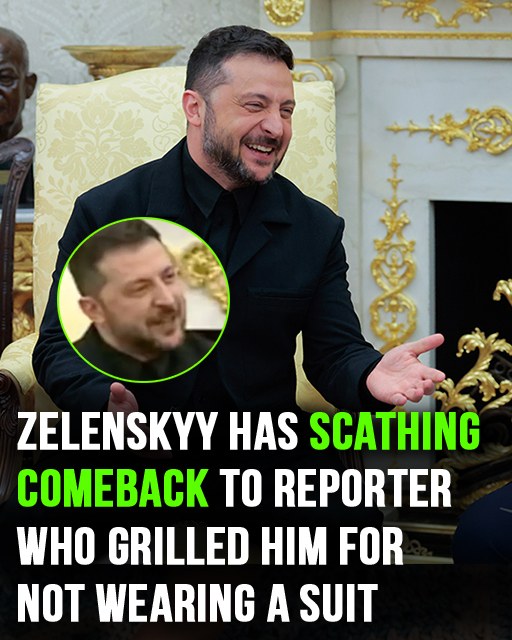Trump accused him of “gambling with World War III,” while Ohio Senator JD Vance chastised him for not being sufficiently grateful to the United States. The visit devolved further when Brian Glenn, a reporter from Real America’s Voice, dismissively asked Zelenskyy in the Oval Office: “Why don’t you wear a suit? Do you even own one?”
The tone-deaf question struck a nerve. For a leader governing from trenches and shelters, survival gear was not a costume but a necessity. Yet the moment became emblematic of the entire disastrous trip: instead of an alliance strengthened, Zelenskyy had walked away humiliated. For weeks, pundits questioned whether the U.S.-Ukraine partnership had fractured irreparably.
Perhaps recognizing how much was at stake, Zelenskyy recalibrated his approach for his August return. This time, when he entered the Oval Office, he wore a sharply tailored dark suit. The change in attire was immediately noticed. The mood shifted almost instantly—less confrontational, more formal, almost as if the clothes themselves set the stage for a different kind of meeting. Even Brian Glenn, the very reporter who had publicly mocked him months earlier, offered a sheepish compliment: “You look fabulous,” he said, before adding a public apology for his February remarks.
Zelenskyy seized the moment with quick wit. Smiling calmly, he turned to Glenn and quipped, “You’re wearing the same suit. I’ve changed—you have not.” The line landed perfectly. Laughter rippled through the room, even drawing a chuckle from Trump. It was vintage Zelenskyy—humor sharpened into a political tool, honed from his years as a comedian before his unlikely rise to the presidency. By turning a pointed criticism into a punchline, he disarmed the tension without showing bitterness.
Within minutes, the exchange went viral. Social media users hailed the comeback as both clever and dignified. “What a brilliant way to put that reporter in his place,” one user posted on X. Another wrote, “Could I love him any more? This man knows how to handle hecklers.” The viral moment reminded the world that even in war, Zelenskyy retained his ability to wield humor as a form of soft power.
But beyond the soundbite, the meeting carried serious implications. Zelenskyy’s mission was not simply to dress better or score social media points. He needed continued U.S. funding and weapons, and he sought a broader peace framework that could involve European allies. After Trump’s unsettlingly warm meeting with Putin, Ukraine’s leadership worried that American support might waver. For Zelenskyy, this trip was about survival—not only for himself but for his nation.
Unlike February’s chaotic debacle, the August meeting unfolded with discipline. There were no fiery accusations from Trump, no open humiliation in front of cameras, and no misplaced scolding. Both leaders appeared determined to project unity. Zelenskyy regained some of the dignity he had lost earlier in the year, while Trump managed—for once—to keep the theatrics in check.
Still, questions linger. Critics argue that Trump’s shifting tone on Ukraine keeps allies uneasy, and his willingness to entertain dialogue with Putin casts doubt on America’s long-term commitment. Zelenskyy, meanwhile, must continue walking a tightrope: maintaining his identity as a wartime leader, grounded in grit and sacrifice, while simultaneously persuading skeptical foreign partners that supporting Ukraine is in their interest.
For now, the moment in the Oval Office offered a reprieve from bitterness. It showed how quickly optics can shift when both sides choose discipline over spectacle. Zelenskyy’s witty jab reminded the world that he remains not only a capable statesman but also a communicator who understands the power of language and timing. Humor, even in the darkest circumstances, can cut through political noise and reclaim the narrative.
Whether this marks the beginning of a more constructive phase in U.S.-Ukraine relations remains uncertain. The war shows no sign of ending soon, and international alliances are as fragile as ever. But at least for one day in Washington, a man in a suit reminded the world that defiance doesn’t always come in camouflage—and that sometimes, the sharpest weapon in diplomacy is a well-aimed joke.

